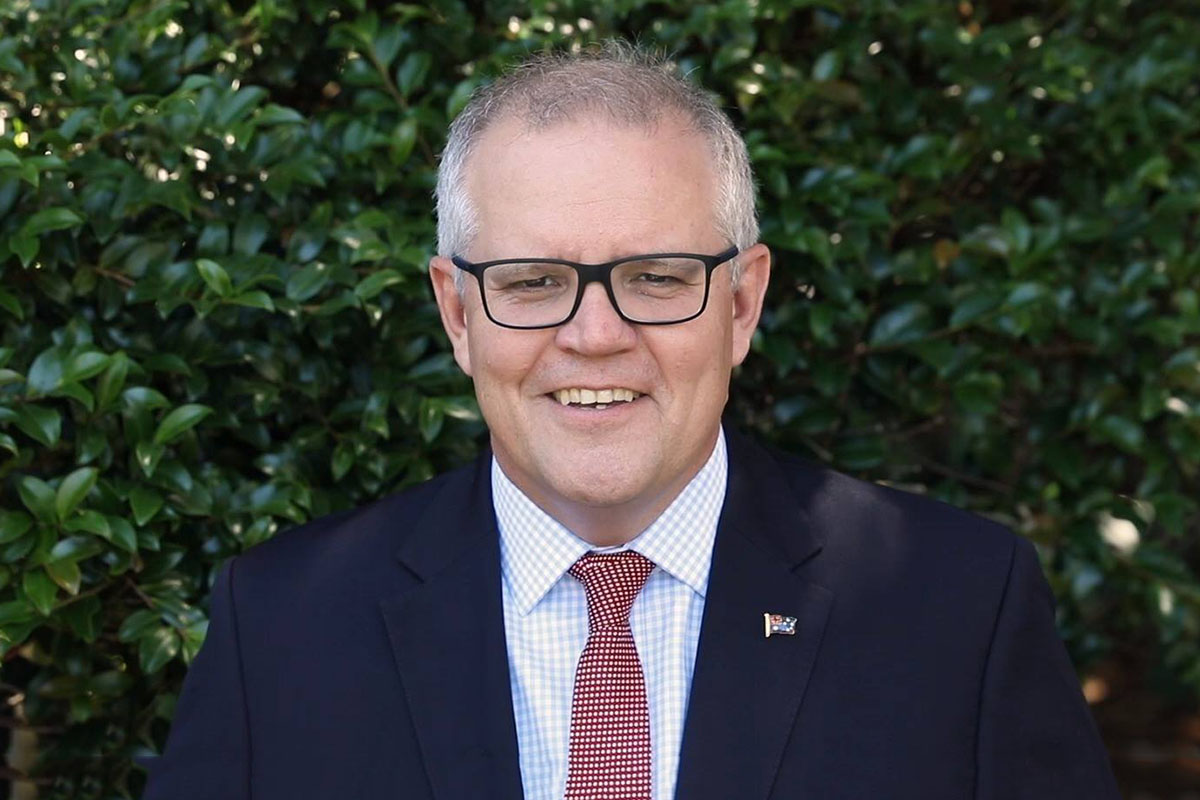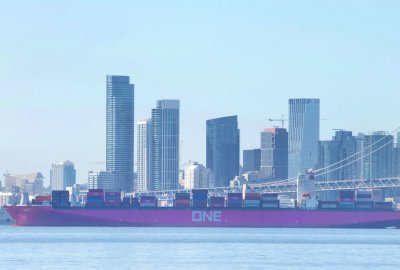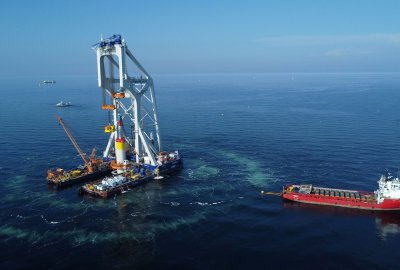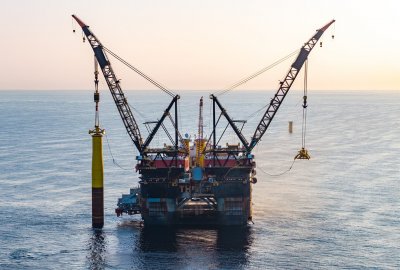Premier Australii Scott Morrison powiedział w niedzielę podczas konferencji prasowej w Sydney, że jego kraj miał "zasadnicze i poważne zastrzeżenia" odnośnie do francuskich okrętów podwodnych, jeszcze zanim porozumienie w sprawie ich zakupu zostało zerwane.
Morrison podkreślił, że rozumie rozczarowanie Paryża odstąpieniem od zakupu i decyzją Australii o zawiązaniu ścisłego paktu obronnego ze Stanami Zjednoczonymi i Wielką Brytanią (AUKUS), ale "jak każdy niepodległy naród musimy podejmować decyzje, które najlepiej odpowiadają naszym suwerennym, narodowym interesom obronnym".
"Myślę, że (Francuzi) mieli wszelkie powody, by rozumieć, że mamy zasadnicze i poważne zastrzeżenia odnośnie do skuteczności bojowej okrętów podwodnym klasy Attack, która nie odpowiada naszym interesom strategicznym" - oświadczył Morrison. Szef australijskiego rządu dodał też, że negocjatorzy kontraktu obronnego na zakup okrętów z jego kraju "jasno zaznaczyli, iż ostateczną decyzję w tej sprawie podejmiemy w oparciu o nasze narodowe priorytety strategiczne".
Wypowiedź premiera rządu Australii została wywołana kryzysem w relacjach dwustronnych z Paryżem, jaki wybuchł po ogłoszeniu przez Canberrę, że Australia odstępuje od umowy na zakup francuskich okrętów i w ramach nowo zawiązanego sojuszu obronnego trzech państw anglojęzycznych: USA, Zjednoczonego Królestwa i Australii będzie budować okręty podwodne o napędzie atomowym oparte na amerykańskiej i brytyjskiej technologii.
Decyzja została odebrana jako uderzająca w przyszłe dobre relacje dwustronne przez władze Francji. Szef MSZ tego kraju Jean-Yves Le Drian poinformował, że Paryż wzywa swoich ambasadorów w Australii i w USA na konsultacje w związku z umową wojskową między Waszyngtonem, Canberrą i Londynem, która doprowadziła do zerwania kontraktu z Francją. Nad Sekwaną uznano, że podważa ona podstawy powojennej współpracy transatlantyckiej.
Le Drian dodał, że decyzję w sprawie odwołania ambasadorów podjął prezydent Francji Emmanuel Macron, który uważa powstałą sytuację za "wyjątkowo poważną".
Stany Zjednoczone "ubolewają" z powodu decyzji Francji o zawezwaniu jej ambasadora w Waszyngtonie na konsultacje - oświadczył w piątek przedstawiciel Białego Domu. Dodał też, że Waszyngton będzie podejmować działania w celu przezwyciężenia rozbieżności między obu krajami "tak, jak to było niejednokrotnie w przeszłości".
Wypowiedź premiera Morrisona jest pierwszą oficjalną próbą wytłumaczenia przesłanek decyzji władz Australii, która wyraźnie zaskoczyła Paryż.
Australia zerwała z Francją kontrakt na zakup od francuskiego koncernu Naval Group konwencjonalnych okrętów podwodnych wart, w ocenie Reutera, ok. 40 mld dolarów. 15 września ogłoszono też zawarcie nowego trójstronnego paktu obronnego między Australią, USA i Wielką Brytanią, zwanego AUKUS.
Fot.: pm.gov.au
Dla zainteresowanych - poniżej pełna transkrypcja konferencji prasowej premiera Australii z 19 września w części dotyczącej zerwanego kontraktu na okręty podwodne:
Journalist: Just on the subs issue, do you regret any way in which it was communicated to the French? I mean, the French Prime Minister has recalled, or the French have recalled their ambassador. Do you regret that happening?
Prime Minister: Well, of course, we are disappointed about the actions of recalling the ambassador, but we understand them and we respect them, and we understand the deep disappointment about the arranged contract that we had to build the Attack-class submarines here in Australia. As we were going towards the next gate, the scope two gate, that we formed the view that the capability that the Attack-Class submarines were going to provide was not what Australia needed to protect our sovereign interests. That's what the decision was about. It was about protecting Australia's sovereign interests. And, of course, it is a matter of great disappointment to the French Government and to the Naval Group, and those who are working on the project. So, I understand their disappointment. But, at the same time, Australia, like any sovereign nation, must always take decisions that are in our sovereign national defence interests. And, that's what we've done in this circumstance. I have, we have made this clear for some time. This was an issue that had been raised by me directly some months ago, and we had continued to talk those issues through, including by defence ministers and others. There had been a range of issues earlier in the contract and throughout the contract that we had continued, we had discussed on numerous occasions. But, ultimately, this was a decision about whether the submarines that were being built, at great cost to the Australian taxpayer, were going to be able to do a job that we needed it to do when they went into service. And, our strategic judgment, based on the best possible intelligence and defence advice, was that it would not. And, so, therefore, to go forward, when we were able to secure a supreme submarine capability to support our defence operations, it would have been negligent for us not to.
Journalist: You said you raised it some months ago …
Prime Minister: Yes.
Journalist: … but when did you directly tell President Macron that you were tearing up this contract?
Prime Minister: The night before.
Journalist: The night before the announcement?
Prime Minister: At about 8.30, slightly after 8.30, on the night prior to the announcement.
Journalist: So, before then they were of the opinion it was still going ahead?
Prime Minister: Well, no, I think they had, they would have had every reason to know that we have deep and grave concerns that the capability being delivered by the Attack-class submarine was not going to meet our strategic interests. And we had made very clear that we would be making a decision based on our strategic national interest.
Journalist: But, if they knew, why did they accuse the Brits and the US of stabbing them in the back, and Australia?
Prime Minister: Well, I don't share that view.
Journalist: But, they're obviously very aggrieved by this. If they knew that there were so many problems, why are they so aggrieved, in your mind?
Prime Minister: Because a contract, which involved a large amount of work and a significant contractual value, was terminated. That's understandable when that occurs, that the party that was involved in that, other party in that contract, would be aggrieved and would be disappointed. I understand that. I totally understand that. But, equally, I'm sure people would understand that Australia's national interest comes first. It must come first. And it did come first. And Australia's interests are best served by the trilateral partnership that I've been able to form with President Biden and Prime Minister Johnson. That is what serves Australia's long-term national interests. That's what I think ensures that we can contribute more significantly to peace and security in the Indo-Pacific region. And that is what is in Australia's best interests. So, I will always do what's in Australia's national interests. These are difficult decisions, and their implications for these decisions, and we understand that. And, so, we look to work with the French and many other like-minded partners. But, on this occasion, pursuing that contract, that build for that submarine, was no longer the best decision for Australia, and it wasn't in Australia's national interest.
Journalist: But, do you regret, do you regret the way in which you communicated this to President Macron, the way it’s led to the bilateral relationship between Australia and France deteriorating over the past couple of days?
Prime Minister: I don't regret the decision to put Australia's national interests first. Never will. Thank you.















